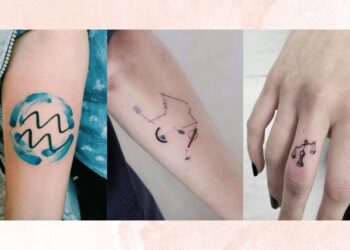Would you be concerned if your company’s accountant had a sleeve of tattoos? Or that your secretary has three piercings on her face?
Being your own person in the workplace can seem like a bit under-valued in the corporate world and while we dream of expressing ourselves creatively in the workplace, most companies aren’t always very supportive of it.
In Malaysia, individuality is gradually being accepted by society, but it’s still on a slower path with employers and corporations. If you’re looking to freely express your identity in the workplace, refer to the company’s background and identity prior to the interview. But do remember that you should adhere to the regulations to an interview. While you want to create a memorable impression of your identity, the company is not going to pay you for the number of tattoos you have or the color of your hair.
What does being an individual mean?
Being an individual means being taken seriously for your qualifications, talent and skill without having your features get in the way. Individualism on the other hand, refers to the beliefs, rights and responsibilities of one person should be more prominent than of a collective (or a group). In most Asian companies, collectivism is practiced as the advantages that team work has provides more stability and perhaps promotes more discipline among employees. However, individualism can create basis for capitalist entrepreneurship but that is not always the case. Some companies are highly dependent on creativity and studies show that groups that comprise of individualistic people are more creative than those of a collective. (Source)
Are there any disadvantages?
One of the major drawbacks of individualism is that it can affect the productivity of the company, thus decreasing revenue, and even causing a lot of conflict and tension in the workplace among other employees. There are however, companies that promote individuality, where managers give employees the chance to look after their own work to a certain level.
Why does individuality matter?
What does having a full sleeve of tattoos have to do with your performance at work? Growing up, our parents tell us that it’s better to conform and look ‘normal’, which would mean that your chances of getting employed is much higher than going to an interview with bright purple hair and a nose ring. And while it does makes sense to a certain degree, the tattoos on your arm shouldn’t be the qualifying factor of you getting the job. Anyone with ‘old-world’ mentality would probably reconsider your application or even have doubtful thoughts about you as an employee, but there are in fact companies that are open to hiring unique individuals who could give the company something fresh. (Source)
So, if you’re one to hold strongly to your creativity and being your own person in a working environment, here are some simple things to keep in mind so that you can prove yourself without losing your identity.
Don’t Over-Do It
A lot of employees do not mind if you’ve already got what you have on, but you don’t need to push it far. Keep it simple, and if you can afford to remove your piercings (especially for important meetings), do take them out whenever it’s appropriate. If you don’t want to hide what you have, at least make the effort to look more presentable and clean-up your look.
Make Room For Doubt
The workplace leaves room for office gossip, and believe it or not, tattooed or not, there’s an 80% chance that you’ll be part of the office goss. So, whatever your colleagues may or may not be talking about you, simply shrug it off and focus on what you’re supposed to do – your job. People may doubt you too, but that gives you the golden opportunity to prove them wrong and to show just how strong you are.
Stay Focused
We’re more than certain that you want to be regarded as a skilled and creative employee, so stay focused proving that point. Once your employers see that you really are willing to strive to succeed, whatever you have on your skin or the number of piercings you have do not matter.
Do you have tattoos, piercings, etc? Do you hide them at work or show them off? Share with us in our Forum.











